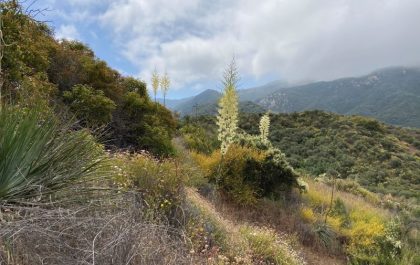On February 16th, Assemblymember Richard Bloom and Senator Allen introduced Assembly Bill 2247, which, for the first time in state law, will require persons to inform the State when bringing PFAS-containing products or substances into California.
PFAS, or perfluorinated or polyfluorinated substances, are a class of approximately 9000 toxic man-made chemicals that can be found in many products, such as nonstick cookware, water repellent clothing, furniture and carpet, and household products, as well as a myriad of industrial materials. Exposure to PFAS has been associated with a wide range of health concerns, including cancer, reproductive harm, high cholesterol, and reduced immune response and vaccine effectiveness. When released into the environment, PFAS do not break down, but rather, they persist and are often referred to as “forever chemicals.” Because of their ubiquitous use, PFAS are now found in water, soil, foods, animals, and even humans.
Disturbingly, these toxins have been identified in drinking water sources serving over 16 million Californians. Despite these concerns about PFAS, the state does not collect data on how much PFAS are entering the state and in what form. As a result, California decision-makers, regulators and impacted agencies, such as water and sanitation systems, cannot adequately manage the chemicals and prevent further human or environmental exposure.
“PFAS are harmful to the health and wellbeing of all Californians,” remarked Assemblymember Bloom. “It’s unconscionable that PFAS are polluting our drinking water systems and impacting some of our most vulnerable communities.”
AB 2247 would require anyone bringing PFAS into California, either via consumer products or industrial materials, to report those products and the amount of PFAS they contain to a publicly accessible database.
“Wastewater agencies are proactively looking for solutions to limit the amount of PFAS from entering our watersheds,” said Adam Link, Executive Director of the California Association of Sanitation Agencies. “We need to have data about the sources of PFAS entering our waterways in order to make informed management decisions. AB 2247 is an important first step toward the end-goal of developing a comprehensive PFAS pollution prevention approach and we applaud Assemblymember Bloom for introducing this important bill.”












